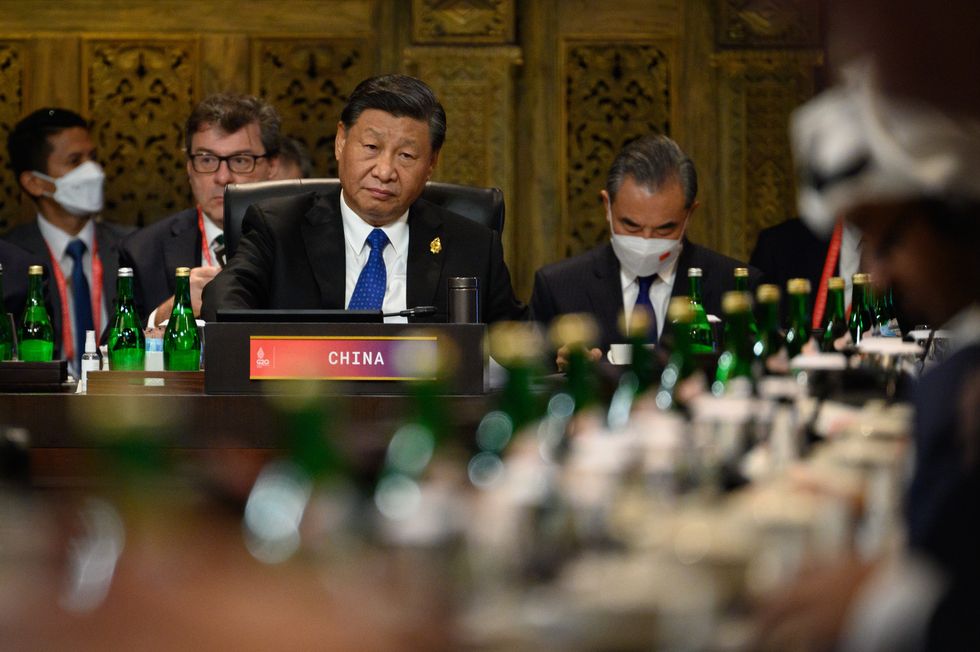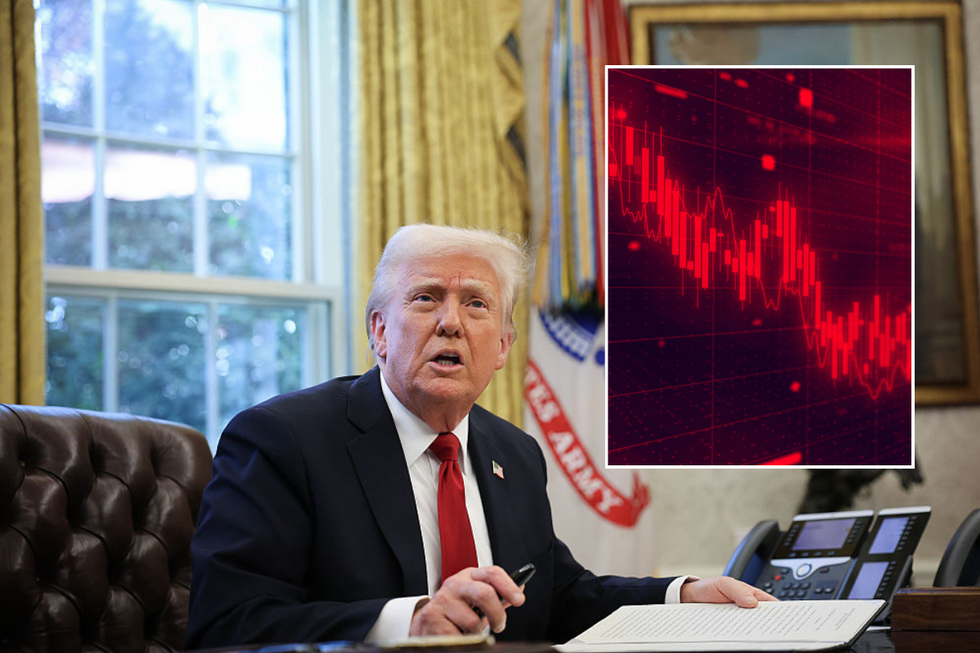Donald Trump: 'China wants to do a deal'
GBNEWS
This is up from 84 per cent announced on Wednesday
Don't Miss
Most Read
Trending on GB News
China has hit back at the US by raising duties on US goods from 84 per cent to 125 per cent, according to a statement from the Customs Tariff Commission of the State Council.
The new tariff will come into force from tomorrow, Apri 12, according to China’s finance ministry.
The move brings China’s tariffs in line with those recently imposed by the U.S., continuing the tit-for-tat trade battle between the world’s two largest economies.
Beijing has signalled it will not respond to any further tariff increases from Washington but strongly criticised the U.S. for what it called "abnormally high tariffs."
Officials said the measures violate international trade rules, basic economic principles, and "common sense," describing them as "unilateral acts of bullying and coercion".
China’s response comes after President Trump raised tariffs on Chinese imports to a total effective rate of 145 per cent—combining a 125 per cent base tariff with an additional 20 per cent levy tied to China’s alleged role in the fentanyl crisis.
 Xi Jinping is the President of ChinaPA
Xi Jinping is the President of ChinaPAWhile the Trump administration has announced a 90-day pause on additional tariffs for most countries, the steep tariffs on Chinese imports—now totalling 145 per cent—remain firmly in place.
Beijing responded by hiking tariffs on American goods to 125 per cent and sharply criticised Washington’s tactics. Beijing urged Washington to scrap what it called "reciprocal tariffs" and correct its "wrong practices."
U.S. Treasury Secretary Scott Bessent defended Washington’s position and criticised China’s refusal to engage in negotiations.
Speaking to Fox Business on Wednesday he described China as "the worst offender in the international trading system" and accused it of maintaining "the most imbalanced economy in the history of the modern world."
 Stock markets across the world are holding their breaths ahead of Trump's "Liberation Day"Getty
Stock markets across the world are holding their breaths ahead of Trump's "Liberation Day"GettyHe warned that their last latest escalation "is a loser for them."
Economists warn that rising global trade tensions could put pressure on British exports, supply chains, and business investment. Manufacturing and automotive sectors—both heavily reliant on international trade—are expected to feel the impact most sharply.
In response to rising trade tensions and a weakening global outlook, Goldman Sachs on Thursday downgraded its forecast for China’s GDP growth to four per cent.
US stock markets have reacted negatively to the escalating trade tensions. The S&P 500 fell by 4.5 per cent, the Nasdaq by 5.25 per cent, and the Dow Jones by 3.67 per cent.

China hits US with 125 per cent tariff in major trade war escalation
REUTERSMajor corporations including Apple, Meta, Tesla, and Microsoft suffered steep declines. Former Treasury Secretary Janet Yellen criticized the tariffs as a severe self-inflicted economic wound, warning of recession risks.
As the trade conflict continues to unfold, businesses and investors worldwide are bracing for further volatility and economic uncertainty.
Analysts say the escalation could also lead to price hikes on consumer goods, as businesses pass rising import costs onto shoppers.
There are growing fears that prolonged trade tensions could drag down global growth and trigger a recession in the US.







